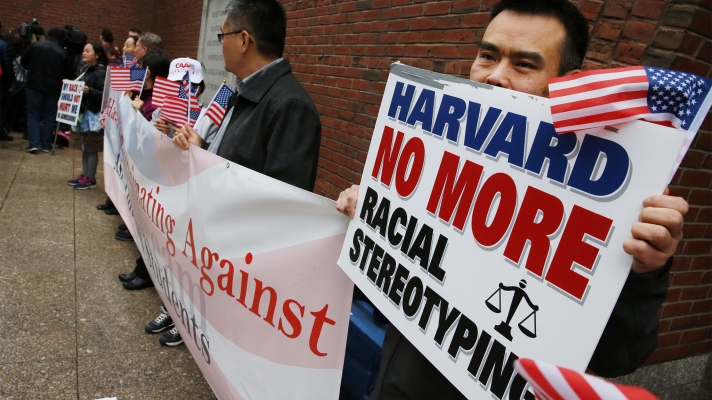Craig F. Walker / The Boston Globe via Getty Images
The origins of the affirmative action debate arguably revolved around a racial binary of white and Black students. But the face of victimhood has now changed. In a case pending before the U.S. Supreme Court targeting Harvard University, a group founded by a white conservative tactician is arguing that the use of race-conscious admissions allows the elite university to discriminate against Asian Americans.
This new strategy might resonate with the high court’s conservative majority, which is already skeptical of the use of race-based remedies to correct historic injustices, and it’s not hard to see why — who wouldn’t be alarmed if race-conscious admissions are hurting the very students they’re supposed to help? But if the justices rule in the plaintiffs’ favor later this spring or summer, it might not be because there’s overwhelming evidence that the end of affirmative action would be good for Asian Americans — or even that Asian Americans, as a whole, want race-conscious admissions to end. In reality, the plaintiffs’ success this go-around could hinge on whether this new argument can conjure up more judicial sympathy than white students were able to.
The plaintiffs’ logic has long been a topic of debate and implicitly draws on a longstanding set of stereotypes about Asian Americans, but that’s a feature, not a bug, of their argument. They’re hoping this year’s case will result in a college admissions process in which there would be no race or ethnicity boxes to check.
“Race has always…
Read the full article here





